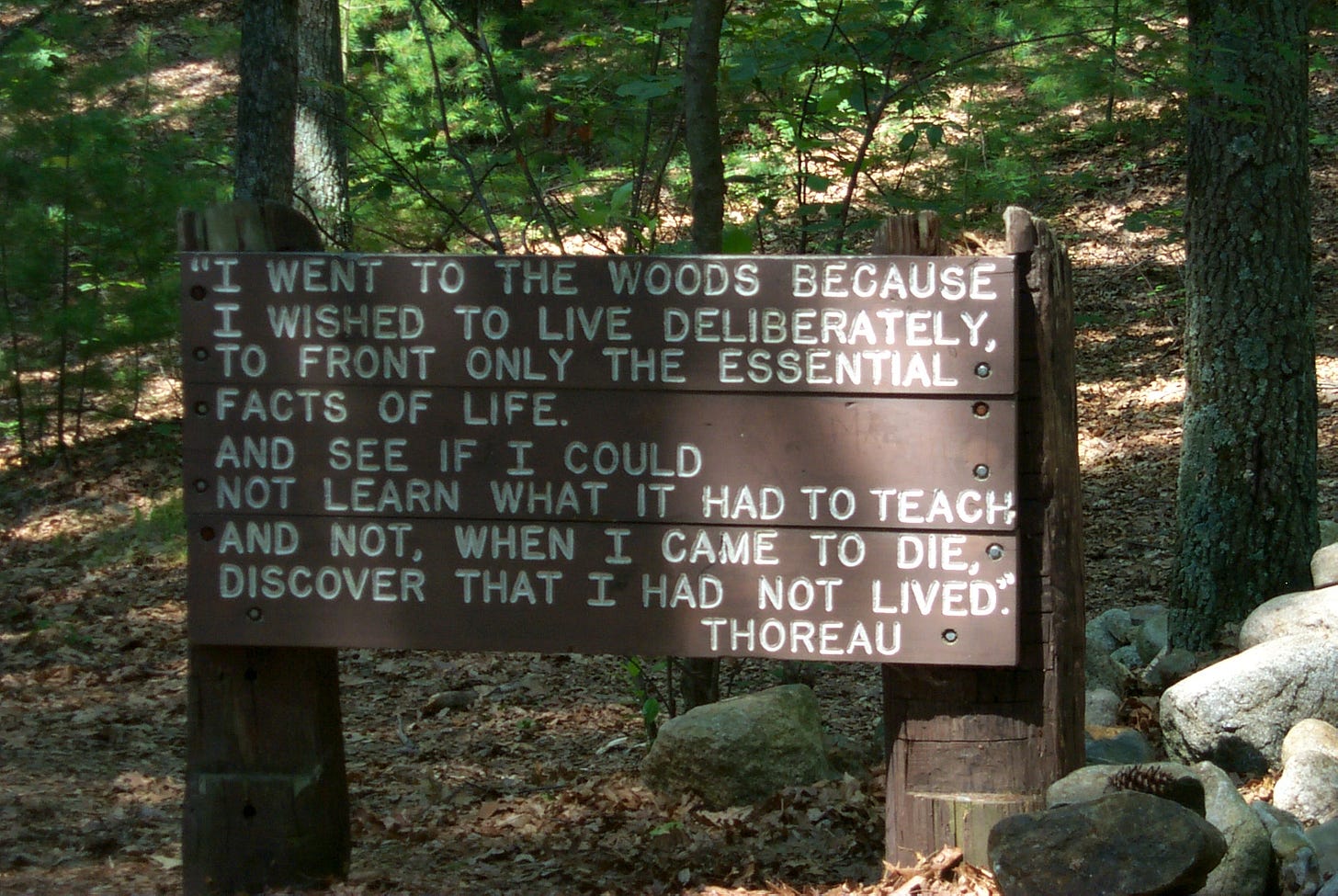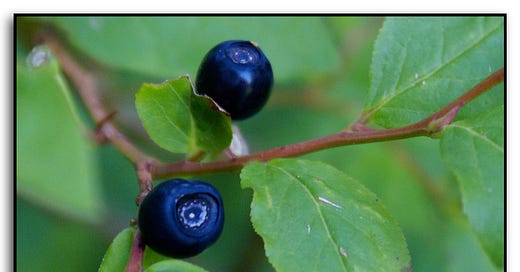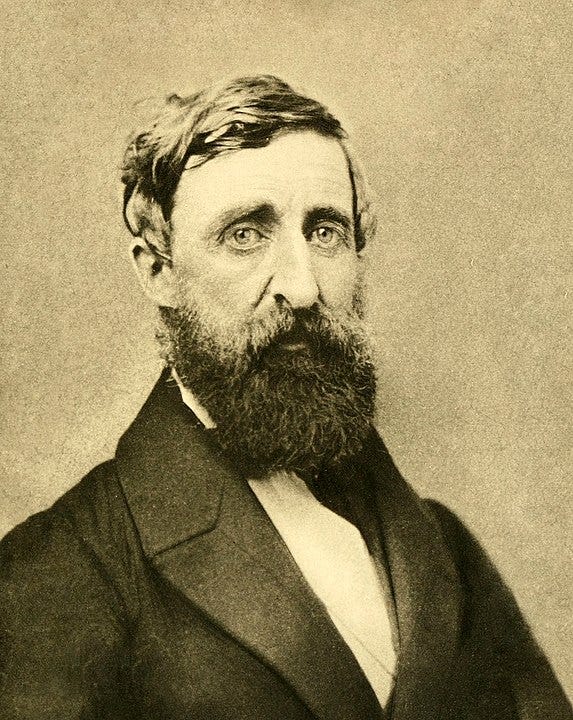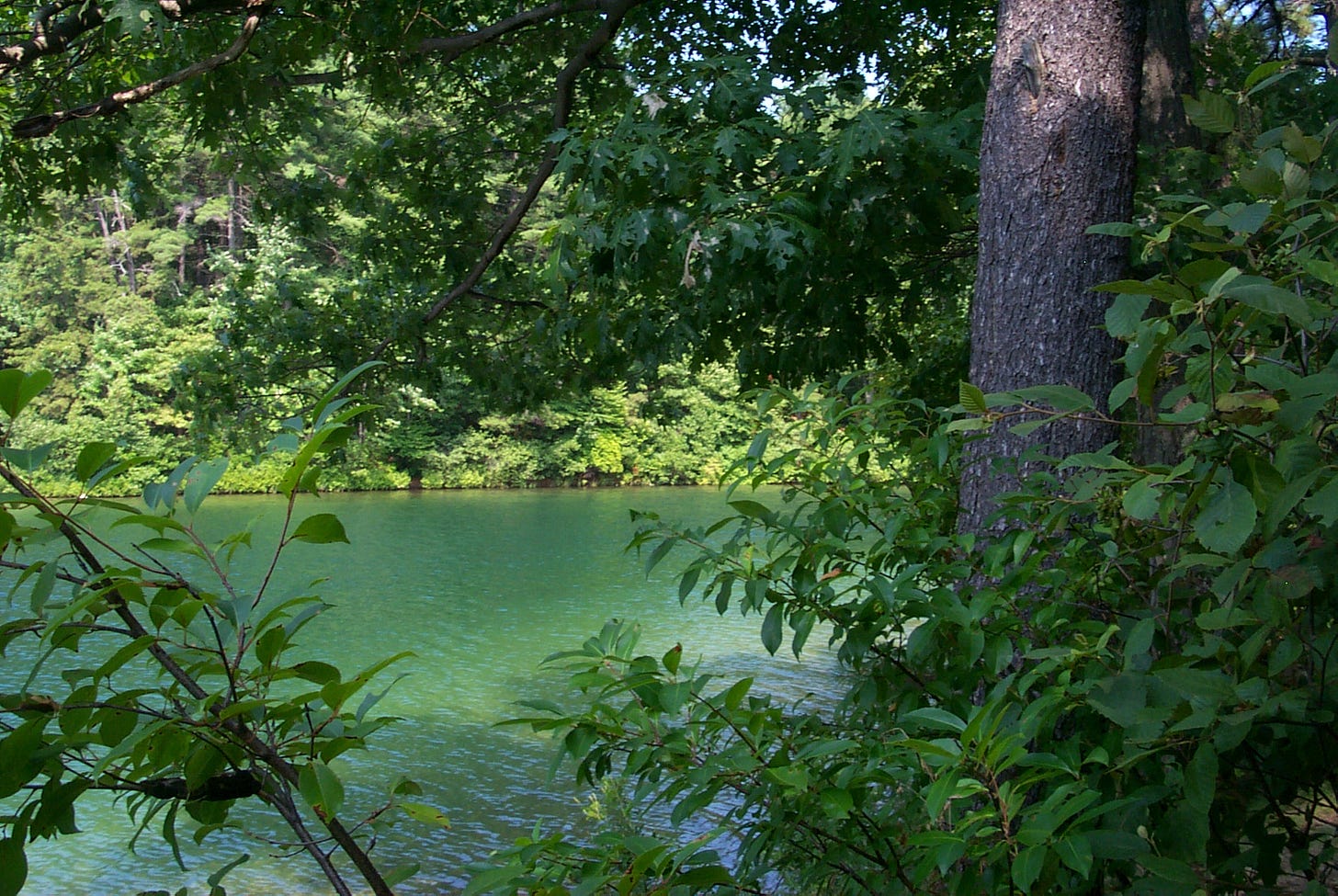It is in vain to dream of wildness distant from ourselves.
—The Journal of Henry David Thoreau, 1837-1861
Stealing Fruit
Recently, I was reading Rural Hours by Susan Fenimore Cooper for a post on my own newsletter. I followed Cooper’s thinking and then my mind drifted elsewhere like dandelion seeds on the breeze.
The book is considered the first nature writing by an American woman. Cooper organized it by the seasons and framed it with journal entries. In Rural Hours, Cooper closely observed the mid-nineteenth-century environment around Cooperstown, New York—a village her grandfather founded. Published in 1850, the book reveals a nature undergoing transformation and a mind investigating the change. For an environmental historian like me, it’s a rich text, a unique historical window.
I’ve read excerpts before, but this is my first time reading cover to cover. I’m reading it in seasonal pieces for my newsletter, devoting time near the solstice or equinox for each of Cooper’s seasons.
In the entry on the summer solstice, Cooper lamented the lack of fruit growing among her New York neighbors. Two reasons explained this. First, fruits like peaches and grapes were so easy to acquire from elsewhere via railroads that few people tried to grow them—a good reminder that foodsheds were vast even in the middle of the nineteenth century.
Second, and more interesting to me, Cooper reported that,
fruit-stealing is a very common crime in this part of the world. . . . Property of this kind is almost without protection among us; there are laws on the subject, but these are never enforced, and of course people are not willing to throw away money, and time, and thought, to raise fruit for those who might easily raise it for themselves, if they would take the pains to do so.
Common thievery stunted local horticulture.
Cooper found this situation regrettable, because she loved gardens, thinking them as having a civilizing effect on people. And this “civilizing” lesson was necessary in her opinion, because “the impunity with which boys, and men, too, are allowed to commit thefts of this kind, is really a painful picture, for it must inevitably lead to increase a spirit of dishonesty throughout the community.”
Too many people had poor manners, disregarded others’ rights, and were simply dishonest.
(Later, Cooper expressed some ambivalence about property when writing about trees. She loved a patch of pines on her village’s edge. She feared them being cut: “The preservation of those old pines must depend entirely upon the will of their owner; they are private property; we have no right to ask that they may be spared, but it is impossible to behold their hoary trunks and crested heads without feeling a hope that they may long continue unscathed, to look down upon the village which has sprung up at their feet.” Depending on a landowner to preserve nature’s dignity seemed no more reliable than expecting local fruit-stealers to stop.)
Recovering Thoreau and His Huckleberries
Reading about Cooper’s neighbors stealing fruit reminded me of my favorite essay written by one of her contemporaries, Henry David Thoreau. His essay “Huckleberries” is an underappreciated gem. So I revisited it, something I am always eager to do because it teaches me new things with each reading.
As writer Rebecca Solnit once pointed out, “Thoreau was emphatic about the huckleberries.” Solnit explained how Thoreau twice told how, after spending the night in jail for refusing to pay taxes that supported a state that accepted slavery, he left town and went to Fair-Haven Hill to pick huckleberries.
His night in jail is famous, because it inspired his influential essay “Civil Disobedience.” His trip to the hill to join a huckleberry party is not. It should be. It is a bridge to understand Thoreau.

Critics sometimes see Thoreau as an isolated loner who preferred solitude at Walden Pond to society. Solnit reminds us that for Thoreau “nature and culture, landscape and politics, the city and the country are inextricably interfused.”
Even more, Solnit encourages us to see in Thoreau someone for whom freedom mattered—others’ and his own. “If he went to jail to demonstrate his commitment to the freedom of others,” Solnit writes, “he went to the berries to exercise his own recovered freedom, the liberty to do whatever he wished, and the evidence in all his writing is that he very often wished to pick berries.”
“Huckleberries”
When Thoreau died of tuberculosis in 1862, he was working on a manuscript he was calling “Wild Fruits.” Included in that project was his essay “Huckleberries,” advanced but incomplete.
When I reread it most recently I rediscovered an anecdote I had forgotten.
Thoreau sometimes worked as a surveyor, which required close attention to the land. Once, while doing a job, the farmer told Thoreau he did not know when he should pay. The farmer had pigs and the farm, so Thoreau trusted he would be paid. “After many months he sent me a quart of red huckleberries, for they grew on his farm,” Thoreau explained, “and this I thought was ominous.” The farmer meant the huckleberries to be partial payment. Thoreau never received the full amount. “I shall beware of red huckleberry gifts in the future,” he wrote wryly.
This story appears short way into the essay almost hidden amid a long section of the natural history of huckleberries in which Thoreau demonstrates close attention to Latin names and huckleberry history and lore, much as he cared for the survey lines around Concord, Massachusetts.
For years, I taught “Huckleberries” in my environmental history courses, something I have reflected on before. But it appeared in an anthology excerpted and the first half had been cut. It is easy to see why: the second half is much stronger. There, Thoreau uses huckleberries to explore things as simple as pleasure and as complex as property relations.
Thoreau liked “wild fruits,” even preferred them to “the more celebrated ones of the tropics,” because the “pleasure of gathering” them was central to their value. He recalled boyhood days when, alone or in groups, he headed out a-berrying. Scattered across hillsides around Concord, Thoreau remembered “what a sense of freedom and spirit of adventure” that arose while picking huckleberries alone and with other children.
Those youthful, carefree days had passed, Thoreau lamented. Now when huckleberry pickers headed out, they “see stakes set up with written notices forbidding any to pick” the wild fruits. “What sort of country is that where the huckleberry fields are private property?” he wondered.
The berries were converted to cash and sold, a desecration to Thoreau’s eyes. He supposed it was inevitable that huckleberries were reduced “to a level with beef-steaks.” But for Thoreau, the better part of huckleberries was in gathering them freely. “As long as the berries are free to all comers they are beautiful, though they may be few and small,” he said, “but tell me that this is a blueberry swamp which somebody has hired, and I shall not even want to look at it.”
“Sic transit gloria ruris,” he wrote. Thus passes the glory of the countryside.
It is tempting to see Thoreau’s critique as somewhat misanthropic and a paean to some rural golden age. But his criticism cut deeper.
When huckleberries became a commodity to trade on par with a beef-steak, then there would be “no other interest in berries but a pecuniary one,” Thoreau wrote. “Such is the constitution of our society that we make a compromise and permit the berries to be degraded, to be enslaved, as it were.”
It is important to situate Thoreau in time. His musings about huckleberries appear in his journals in the mid-1850s, a time when the Constitution was being torn apart over questions of slavery, when compromises were patching together an economic, political, and social system that frayed to the point of disintegration.
Thoreau was still working on “Huckleberries” when he died in 1862, the second year of the Civil War. To include “constitution,” “compromise,” and “enslaved” in a single sentence can be no accident.
“Huckleberries” contains quintessential Thoreau: close attention to natural history and ecological conditions laced with social commentary that revealed not a misanthrope but a committed humanitarian and lover of the living world.
Huckleberries were not the only thing unable to escape the grasping maw of capitalism.
“Most men, it appears to me, do not care for Nature, and would sell their share in all her beauty, for as long as they may live, for a stated and not very large sum,” Thoreau mused.
Too many people sit amid an unfolding climate catastrophe today selling their shares just like Thoreau’s neighbors priced berries, stealing the future just as Cooper’s neighbors would steal fruit.
Sharing Huckleberries
But huckleberries are meant to be gathered and shared.
For years, one of my colleagues was Rodney Frey, an ethnographer who collaborated with many Indigenous elders. One such elder, Cliff SiJohn (Schitsu’umsh), told of the importance of gathering huckleberries, sharing their bounty, and storing them for future use. As related in Frey’s Carry Forth the Stories: An Ethnographer’s Journey into Native Oral Tradition, SiJohn told Frey’s students that their education was like huckleberries. Gather all the lessons and experiences you can, he said. “Cherish them. And then when you or someone you care for is in need, facing a challenge, needs a little nourishment, needs a little guidance, a little help, what are you to do? How will you choose to use the berries? . . . Pull out some of those berries and use them, use them to help someone else in need.”
You do not sell them.
By being attentive and setting our hearts right, we can find wild fruits available in myriad forms. In fact, they are only available freely. “The true fruit of Nature can only be plucked with a fluttering heart and a delicate hand, not bribed by any earthly reward,” Thoreau wrote. “No hired man can help us to gather that crop.”









Well-said, much like that "critical hour."
Thanks for joining Inner Life, Adam! Huckleberries factored heavily into my Montana upbringing. They still are a major food source for many rural families. While there are abusive commercial operations and people who rake berries from bushes with tines or beat them with tennis rackets, there are many roadside stands and barter relationships built around sustainably harvested huckleberries. I love seeing how my own cultural history intersects with Cooper and Thoreau.